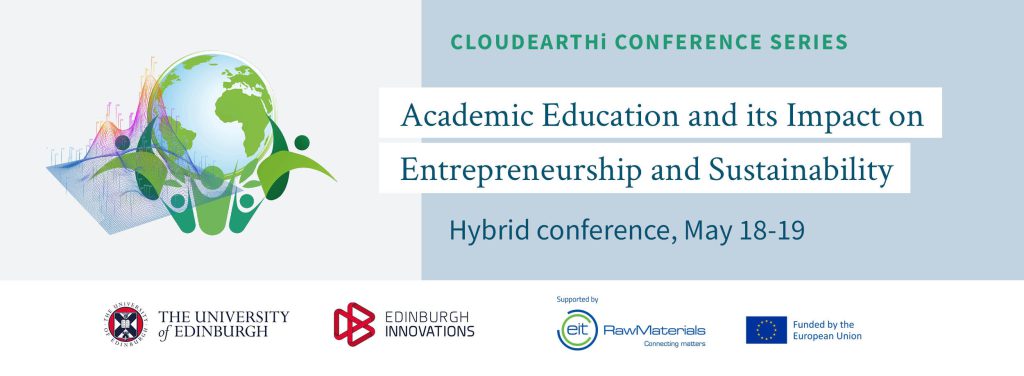
Susanna Albertini and Selenia Marinelli (representing FVA, Transition2Bio and BIObec projects and the European Bioeconomy Network), together with George Sakellaris and Marie Kubankova (representing BIOEAST initiative and BIObec project), participated to the CloudEARTH conference, which took place last 19 May. The conference was organized as a hybrid event at the University of Applied Sciences Burgenland in Eisenstadt, Austria, and online.
CloudEARTH conference connects academics with businesses, public bodies and NGOs in order to explore how environmental sciences, sustainability, circular economy and the application of big data in business contexts can benefit society. Specifically, the conference is organised within the CloudEARTHi project and funded by the European Union and EIT RawMaterials. It is the first of a conference series on Innovation Capacity Building in Environmental Sciences, Sustainability and Circular Economy in Higher Education Institutions and their Entrepreneurial Ecosystems.
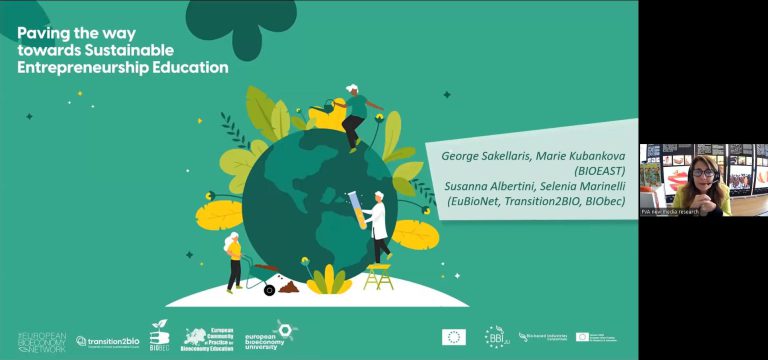
In this context, the results from the workshop “Paving the way towards Sustainable Entrepreneurship Education” were presented as a collection of insights and case studies on Sustainable Entrepreneurship Education (SEE), a field resulting from the intersection of two substantial research and education domains, Sustainable Entrepreneurship and Entrepreneurship Education.
This particular area has gained attention in recent years, and a number of quantitative and qualitative studies are carried out to explore its diverse dimensions. Given its nature and orientation, SEE is the domain the best adapted to the requirements of the sustainable circular bioeconomy and the bio-based sector.
The workshop was co-organised last 15 March by The European Bioeconomy Network, Transition2Bio, the European Community of Practice for Bioeconomy Education, BIOSKILLS, BIObec and the European Bioeconomy University (EBU). The aim was to identify how the cross-fertilisation of EE and SE can help design educational curricula and extra-curricular activities for sustainability-minded entrepreneurs of tomorrow, involving projects and initiatives highlighting the intersection between Entrepreneurship Education (EE) and Sustainable Education (SE), with a special focus on circular and sustainable bioeconomy.
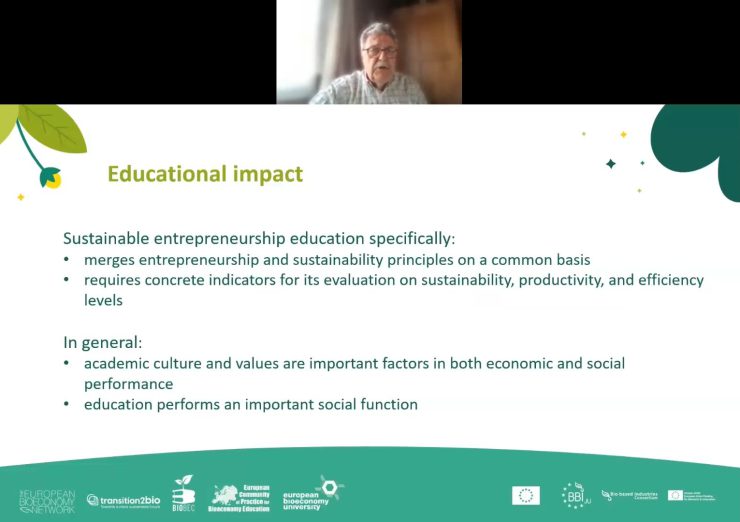
In the first part of the workshop, several projects and initiatives presented their inspirational case studies to provide insights and knowledge, in order to stimulate the discussion and mutual learning.
The speakers presented their case studies on key “what” and “how” questions and highlighted gaps that still to be addressed, including: limited exposure to the biobased related industry in some regions, limited good practice examples to support peer to peer learning and mutual learning, a gap between education and industry, the need to increase transversal capacities and skills and “systemic thinking”, the a necessity to develop entrepreneurial and creative mindsets, limited availability of entrepreneurship education in higher and vocational education, as well as giving a central role to entrepreneurship education, in a career perspective.
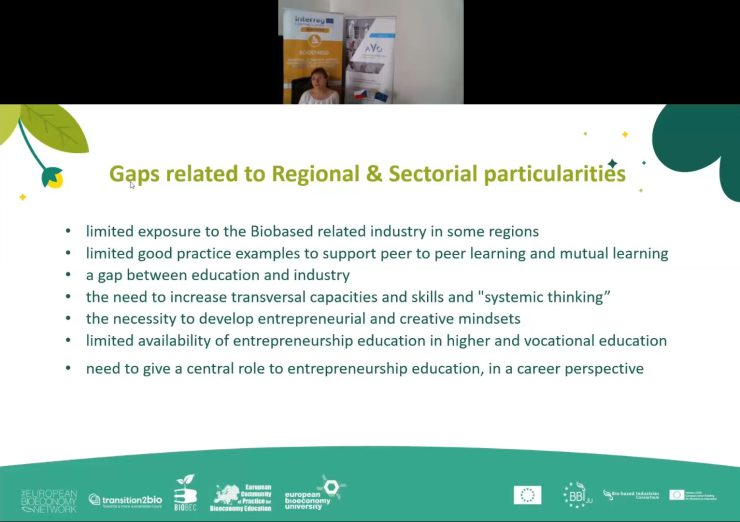
The “case-storming” was followed by a vivid interaction among the experts, representing a wide spectrum of regions, domains, and sectors to discuss on the necessary competences, educational methodologies and context, to finally provide recommendations.
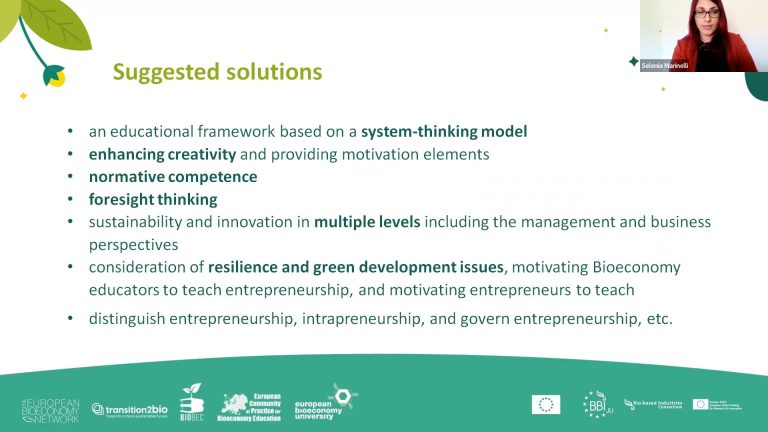
The resulted outcomes contribute to facilitating the mutual learning and knowledge sharing among the two domains (EE and SE), with a special focus on circular bioeconomy. Participants were also encouraged to share thoughts on how to address the above-mentioned gaps.
The abstract of the presentation is available at this link.